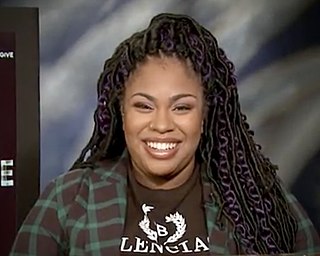A Quote by Dawn Foster
Codes and signals are as important as explicit messages, and the two are linked. The bore pressing someone to tell them 'where they're really from' will see themselves as different to the aggressive stranger barking at someone to 'get back to their own country,' but the subconscious, if not explicit, message is the same.
Related Quotes
An axiomatic system comprises axioms and theorems and requires a certain amount of hand-eye coordination before it works. A formal system comprises an explicit list of symbols, an explicit set of rules governing their cohabitation, an explicit list of axioms, and, above all, an explicit list of rules explicitly governing the steps that the mathematician may take in going from assumptions to conclusions. No appeal to meaning nor to intuition. Symbols lose their referential powers; inferences become mechanical.
There are things that I really find important, and that we need to remind ourselves of. When you think about disability, do you really think about it? Someone who's a full-time trainer or a boxer, someone who's got a major disability, but who doesn't let that get in his way, that's a really good message for someone who is able-bodied. It can make them think, 'Wow, I suppose I could be doing better for myself.'
If you have an image of someone cutting off a relationship, it's the cutting off that will lead to your suffering. If you see the action as their need being expressed, then the message is within them, not you. Any interpretation you put onto another person's message (such as passive-aggressive, withholding, etc.), you will pay for because of how you took it.
You have to be different to make a difference. You cannot change anything by adding more of the same. The greatest spiritual impact is made upon people by someone who is different from them. Others must see someone like Christ in us –- not someone like the rest of the world –- if we are to have any godly influence on them.
It's true, there aren't many explicit references to Canada in my book. And not many explicit references to the U.S., either. I try to fill my poems with enough real, observed detail that the poems create a believable world - but I don't write poems for the sake of telling my own story. My life is not important or interesting enough to warrant that kind of documentary. Instead I try to use my experience as a way of understanding situations that are common to many people. I want readers to project their own lives onto my poems.
There is no mystery in a looking glass until someone looks into it. Then, though it remains the same glass, it presents a different face to each man who holds it in front of him. The same is true of a work of art. It has no proper existence as art until someone is reflected in it--and no two will ever be reflected in the same way. However much we all see in common in such a work, at the center we behold a fragment of our own soul, and the greater the art the greater the fragment.
We buy things. We wear them or put them on our walls, or sit on them, but anyone who wants to can take them away from us. Or break them.
...
Long after he's dead, someone else will own those stupid little boxes, and then someone after him, just as someone owned them before he did. But no one ever thinks of that: objects survive us and go on living. It's stupid to believe we own them. And it's sinful for them to be so important.
We always see Aung San as a strong, tough woman. There are two stories running in parallel. You see the contradictions between the East and the West, and you see someone who does mundane and normal things - someone who's supposed to be a housewife - and then someone who's become important and imprisoned.
































